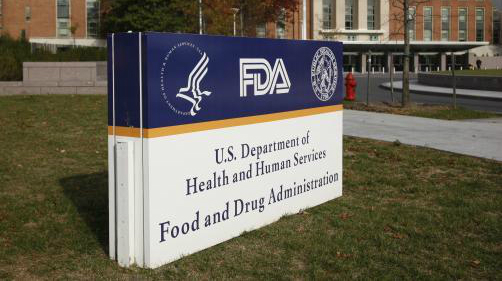Consumer group seeks resignation of top FDA staffers over Aduhelm okay

With the first patient set to receive Biogen's new Alzheimer's drug Aduhelm in Rhode Island today, US consumer advocacy organisation Public Citizen is deeply unhappy about the FDA's approval of the drug – and it wants the scalps of those responsible.
In a letter to Secretary of Health and Human Services Xavier Becerra, the director of Public Citizen's Health Research group – Michael Carome – calls the FDA's approval "reckless" and "one of the most irresponsible and egregious decisions in the history of the agency."
The advocacy group wants the resignations of acting FDA commissioner Janet Woodcock, Centre for Drug Evaluation and Research (CDER) director Patrizia Cavazzoni, and CDER's office of neuroscience director Billy Dunn – who have all been forced to defend the controversial decision over the last few days.
Aside from the lack of evidence that Aduhelm (aducanumab) provides any meaningful clinical benefit is "the fact that the drug has a well-documented risk of potentially serious brain injury," wrote Carome in the letter.
Biogen has also come in for steep criticism for its decision to price Aduhelm at $56,000 a year, and gets a broadside from the advocacy group as well, which says the company and its shareholders "undoubtedly are ecstatic about their soon-to-be-reaped windfall profits from sales of the…exorbitantly priced but ineffective drug."
The price is way above the value-for-money range of $2,500 to $8,300 calculated by the US Institute for Clinical and Economic Review (ICER), as well as the predictions of many analysts tracking the medicine.
Public Citizen reiterates accusations that the FDA allowed itself to become too close to Biogen in the analysis and interpretation of data from Aduhelm's clinical trials, and takes issue with basing the approval of its Biologics License Application (BLA) on an "unvalidated" surrogate marker as well as ignoring the advice of its own expert advisors.
Three members of the 12-strong FDA advisory committee that voted overwhelmingly against the principal study supporting the drug's marketing application have resigned from the panel in protest at the decision.
The letter also slams the FDA's decision to approve Aduhelm for anyone with Alzheimer's disease, regardless of severity, in what Carome describes as "a stunning disregard for science" that "eviscerated the agency's standards for approving new drugs."
Biogen's main studies filed in support of included only patients with mild cognitive impairment or dementia caused by Alzheimer's, but the broad label approved by the regulator means Biogen can market it for all patients with the disease.
"The correct decision regarding Biogen's BLA for aducanumab for treating Alzheimer's disease was obvious: the FDA should have rejected the drug and required that the company conduct another large, placebo-controlled clinical trial before giving any further consideration to approving aducanumab," according to Carome.
The FDA gave Aduhelm an accelerated approval, meaning that Biogen has to carry out a post-marketing trial to confirm that it is effective, although results from that will be years away.












